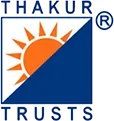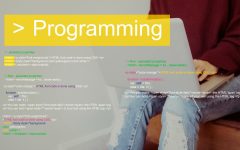Navigating Your Future — Unleashing Potential at TSPDC
July 17, 2025 2026-01-20 14:55Navigating Your Future — Unleashing Potential at TSPDC

Navigating Your Future — Unleashing Potential at TSPDC
If you’re reading this, chances are, you’ve reached a critical turning point. Maybe you’ve just finished a college program, entered a career, or are still making educational plans. Whatever your situation, one question appears to have hung in the air: “What next?” Maybe you’re still trying to determine your calling — or questioning whether you’re a dreamer, strategist, creator, or builder.
But this is the important reality: selecting a career isn’t only about what you do — it’s about who you want to be.
With the accelerated rate at which technology is growing, more and more career options and jobs are available every year. From Full-Stack Developer and AI Architect to Ethical Hacker and Digital Entrepreneur, there are countless possibilities. Nowadays, it’s not only what you know — but why and how you do it.
So, where do you start? Here’s how you can navigate this awkward stage and position yourself for success:
Step 1: Start with Yourself
Before jumping into a course list or looking at career possibilities, invest some time to discover your interests, your aptitudes, and you’re learning style. Think about these essential questions:
What motivates you?
- Do you like cracking tough problems or addressing issues that affect actual organizations, society, or individuals?
- Are you just a naturally curious person who wants to know how things work — machines, devices, or software?
- Are you more of an analytical thinker or do you tend towards creative, out-of-the-box thinking?
- Do you enjoy trying things out and constructing, or working with teams and projects?
How do you learn best?
- If you’re a visual, hands-on learner, you could possibly excel as an engineer or in the world of animation.
- Analytical minds may thrive in AI, cybersecurity, or research.
- Those with communication and leadership skills may be suited for business or management.
What lifestyle do you see yourself living?
- If you need to earn as you learn, opt for vocational courses or part-time work-integrated studies.
- If flexibility is a top concern, seek programs that include modular or hybrid learning models.
- If you’re passionate about research or pursuing a Ph.D., consider courses with a strong academic focus.
Understanding your learning preferences, strengths, and career aspirations is essential. It’s better to select a program aligned with your goals rather than choosing a course because of external pressures or fleeting trends.
Step 2: Know Your Academic & Career Options
Now that you’ve gained a better understanding of your interests and style, let’s look at a few academic options that might align with your profile and career aspirations:
- If you are…
A systematic thinker, passionate about building systems and solving complex problems.
Then you might love…
- B.Sc. in Computer Science (B.Sc. C.S.)
- B.Sc. in Information Technology (B.Sc. I.T.)
- If you’re interested in…
AI, data, and automation.
Then you might love…
- B.Sc. in Data Science (B.Sc. D.S.)
- If you’re…
Strong in business, with an interest in leadership and management.
Then you might love…
- Bachelor of Management Studies (B.M.S.)
- BBA
- MBA (Master’s in Business Administration)
- If you’re creative and love visual storytelling,
Then you might love…
- B.Voc in Multimedia & Mass Communication (B.A.M.M.C.)
- B.Voc in Animation & Design
- If you have an eye for numbers and finance,
Then you might love…
- B.A.F. (Accounting & Finance)
- B.B.I. (Banking & Insurance)
- B.F.M. (Financial Marketing)
- If you enjoy…
Hands-on, practical learning with a focus on technical skills and real-world applications.
Then you might love…
- B.Vocational Courses in AI, Software Development, Analytics
- If you’re a lifelong learner or researcher who wants to delve deep into your field of interest.
Then you might love…
- B.Sc.
- B.A.
- B.Com.
- M.Tech / Ph.D. in Science & Technology
Step 3: Aligning Your Objectives to Industry Needs
In the fast-changing world of today’s job market, firms don’t hire based on degrees anymore; they look for individuals with certain skills and actual industry experience. To excel in such a competitive scenario is:
- Adaptability to newer technology
- Practical experience through live projects and internships
- Specialization in high-in-demand fields such as AI, cybersecurity, and data science
- Communication and collaborative skills
Seek out institutions that provide industry-driven curricula, certifications, and internships, so you’re not only graduating with knowledge — but with tangible, marketable skills.
Step 4: Questions to Ask Before Choosing a Course or College
While choosing a course or a college, it’s essential that it meets your long-term career goals and aspirations. Below are some key questions to ask:
- Is the curriculum updated on latest trends in technology and industry requirements?
- Do they have research opportunities, live projects, and global certifications available?
- Do they provide mentorship and career counselling to chart your career path?
- Will you be industry-ready upon graduation?
College selection isn’t merely the process of choosing the highest-ranked school — it’s choosing one that will support your intellectual and professional aspirations, equipping you with the tools and the means to create those ambitions a reality.
Conclusion: You Don’t Need All the Answers — You Need the Right Platform
At this point, it’s fine if you don’t have it all sorted out yet. The most important thing is to select a platform — a college, institution, or training program — which will facilitate you in the process of discovering, developing, and honing your skills over time.
If you’re searching for an institution that:
- Bridges theoretical knowledge with technical skills
- Provides interdisciplinary courses, ranging from AI to business
- Readies students for international careers or rigorous research
- Aids both working professionals and scholars,
Then TSPDC could quite possibly be where your adventure starts.
Related Posts
How to Start Freelancing While Studying
The Future of Tech Careers for UG Students
Coding and Programming Tips for Beginners
Time for Hobbies: Why It Matters in College
Entrepreneurship Ideas for College Students
Search
Categories









